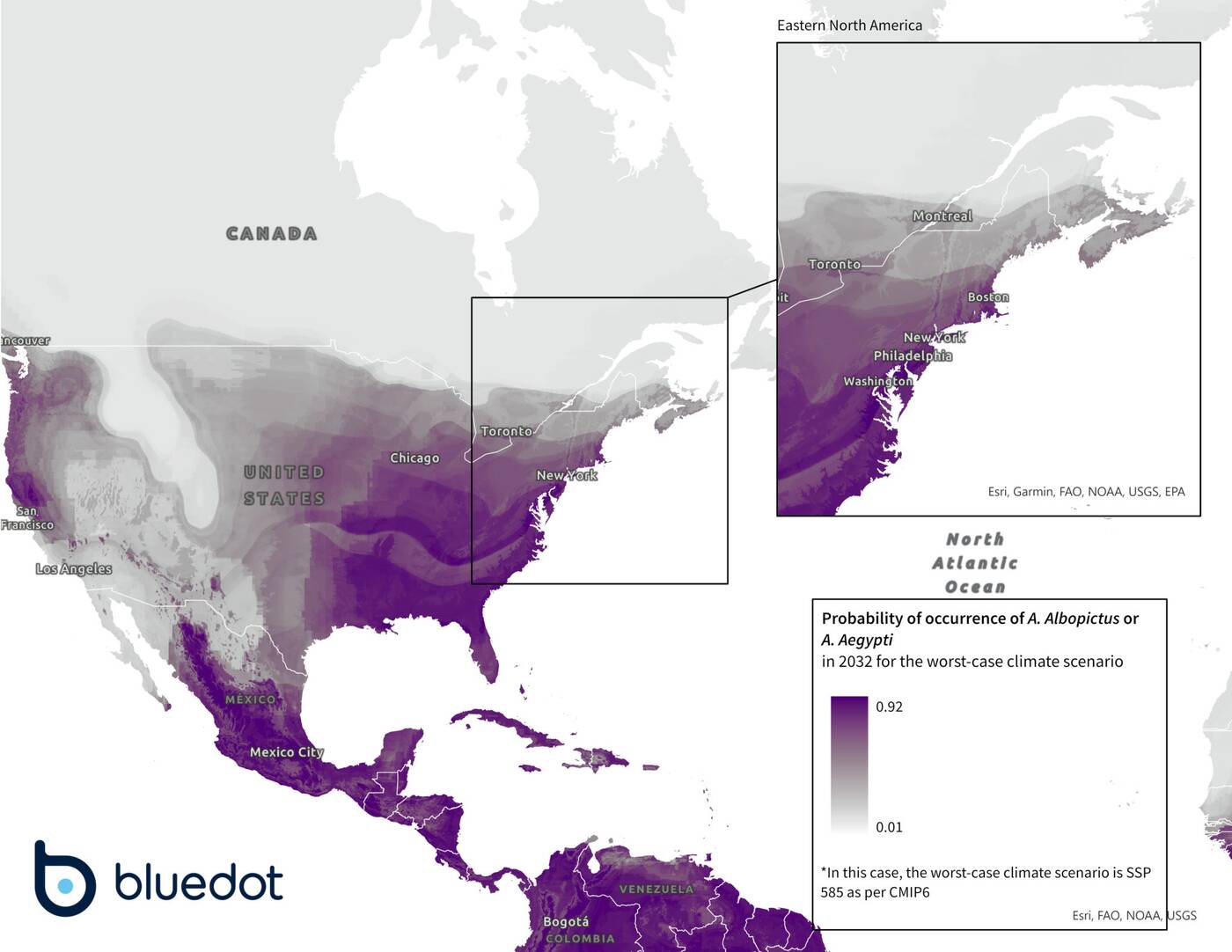
Researchers warn that a dangerous type of mosquito could soon reach Toronto
From the creepy-crawly biting kind to the helpful, almost-kinda-cutie type, there's no shortage of insect life to be found in the City of Toronto, particularly during the warmer months.
While they can be annoying, the majority of insects in this region are considered relatively harmless to humans, posing serious threats only to those with allergies (bees!) or who choose to antagonize incredibly rare visitors.
But, alongside the world's climate, this is changing.
New data released by the Toronto-based outbreak intelligence software firm BlueDot suggests that we may soon start to see a particularly troublesome creature in our area for the first time — one known for spreading potentially deadly diseases like Zika, Dengue fever Chikungunya.
As reported by the Toronto Star this week, BlueDot forecasts a 39 per cent probability of the Aedes albopictus mosquito arriving in Toronto this year. By 2032, that probability rises to 61 per cent.
"With 5 km by 5 km granularity, BlueDot predicts how shifting global surface temperatures will impact the probability of Aedes mosquitoes inhabiting locations over 10 years — a unique and significant breakthrough in the effort against the spread and disruption of mosquito-borne diseases," reads a blog post published by BlueDot Epidemiologist Kaidi Liu on Feb. 16.

BlueDot, a Canadian company that developers software to track the spread of infectious diseases, predicts the northern expansion of the 'Asian Tiger Mosquito' into major cities like New York, London and Toronto over the next decade. Image via BlueDot.
"Over 10 years the current range of habitable environments to Aedes albopictus mosquitoes is projected to expand north including 400 km from New York State to Canada," the post continues, noting that Toronto is one city that would be heavily impacted by such a migration.
"As new regions become breeding grounds for Aedes mosquitoes, and the diseases they transmit, new at-risk populations may be exposed to infection – and are uniquely at risk to large outbreaks."
The tropica; Aedes albopictus mosquito (also known as the "Asian tiger mosquito") has already been detected as far north as Windsor, Ontario, according to The Star.
That said, the closest-ever outbreak of dengue fever was more than 2,000 kilometres away, in Florida, suggesting that we're not at immediate risk.
"With time, we'll probably see more of these mosquitoes and we'll see the diseases start to creep north," said tropical disease researcher Dr. Isaac Bogoch to The Star of BlueDot's report. "But if we look at where the diseases are right now, they're still really far away."
As for the pesky kind of mosquitoes we usually get around these parts, you can expect them to arrive on schedule this summer alongside such other plagues as midges, biting horse flies, ladybird beetles and those black-and-red boxelder bugs that like to clump together on the side of houses.
Latest Videos
Latest Videos
Join the conversation Load comments







